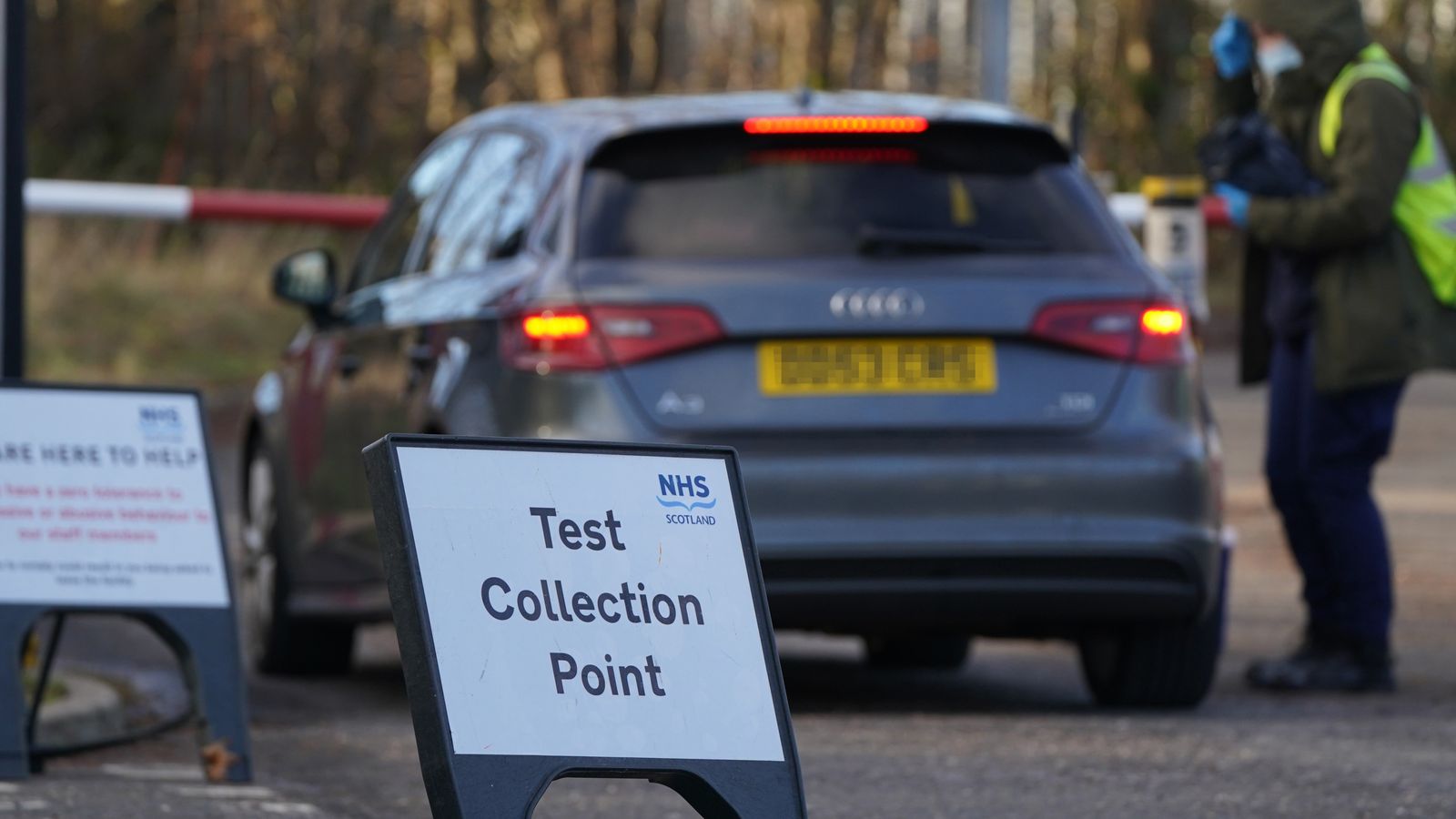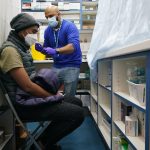Contingency plans are being drawn up over fears a quarter of public sector workers could be absent due to the Omicron wave of COVID infections.
Prime Minister Boris Johnson has told ministers to test preparations for a possible worst-case scenario as daily coronavirus numbers continue to hit record levels.
All government departments are also renewing their efforts to make sure that key workers get their COVID booster jabs to increase protection against the Omicron variant.
It follows fears that large numbers of Britons could be forced to isolate in the early weeks of 2022, causing chaos in public services, transport networks and putting further pressure on NHS staffing levels.
Some rail services in January have already been cancelled, or emergency timetables introduced, amid soaring staff sickness.
Across England as a whole, 24,632 NHS staff at hospital trusts were absent due to COVID reasons on Boxing Day, up 31% from 18,829 a week earlier and nearly double the number at the start of December (12,508).
The total includes staff who were ill with coronavirus or who were having to self-isolate.
NHS likely to lose nearly half of dentists after pressure increased to catch up on backlogs, profession warns
COVID-19: England reports 162,572 new cases and 154 further coronavirus-related deaths, daily figures show
COVID news latest: PCR test slots run out for today; as France reports over 200,000 COVID cases for fourth day running
Steve Barclay, the Chancellor of the Duchy of Lancaster, is chairing regular meetings with fellow ministers to closely monitor the impact of Omicron on workforces and supply chains, as well on schools ahead of the return of pupils to the classroom after the Christmas holidays.
The Cabinet Office said that public sector leaders have been asked to test plans against worst-case scenarios of workforce absences of 10%, 20% and 25%.
Please use Chrome browser for a more accessible video player
Mr Barclay said: “As people return to work following the Christmas break, the high transmissibility levels of Omicron mean business and public services will face disruption in the coming weeks, particularly from higher than normal staff absence.
“We have been working through the Christmas period to prepare where possible for this, with all departments liaising closely with public and private sector leaders who are best placed to operationally manage their workforces.
“The best way to combat Omicron is to get boosted and I encourage anyone who is eligible to get boosted now.”
A taskforce of civil servants based in the Cabinet Office is working on the contingency planning, with regular data being used to identify any potential disruption at an early stage.
Last month, the government urged schools to ask ex-teachers to temporarily return to the classroom to help ease staffing shortages.
In an effort to prevent a new “pingdemic” of millions of Britons being forced to isolate, the government introduced daily testing to prevent the widespread need for self-isolation where people don’t test positive.
And the isolation period for those infected has been reduced from 10 days to seven days with two negative tests.
Efforts have also been made to bolster staff numbers in the NHS and social care sectors, as well as to increase the number of HGV drivers.
Labour accused the government of leaving contingency planning “to the very last moment” in the face of the Omicron wave of COVID cases.
Angela Rayner, the party’s deputy leader, said: “The prime minister’s lack of leadership means his government has dithered and delayed, leaving contingency planning to the very last moment.
“Boris Johnson should have instructed his ministers to start planning weeks ago, but instead he went missing for days on end.
“With record COVID infection numbers, the prime minister must immediately get a grip on workforce pressures, keep essential services moving, keep schools open and keep people safe.”






















